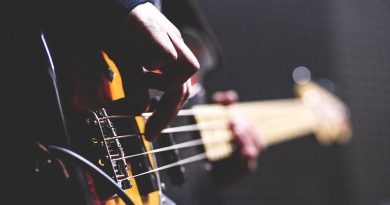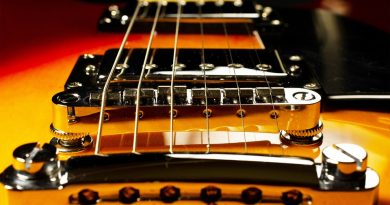Master the Art of Expressive Guitar Playing with These Tips
Master the Art of Expressive Guitar Playing with These Tips
Playing guitar is not just about hitting the right notes. It’s about conveying emotion and feeling through your instrument. To truly master the art of expressive guitar playing, you need to go beyond technical proficiency and tap into your own creativity and emotion. Here are some tips to help you achieve that:
1. Develop a strong connection with your instrument
The first step in mastering expressive guitar playing is developing a strong connection with your instrument. This means understanding the nuances of your guitar, how it responds to different techniques, and how to coax the best tone out of it. Spend time getting to know your instrument, experimenting with different playing styles and techniques, and understanding how to create different sounds with it.
2. Focus on phrasing and dynamics
One of the key elements of expressive guitar playing is phrasing. Phrasing is all about how you structure your playing, how you build tension and release, and how you convey emotion through your music. Pay attention to the dynamics of your playing – how loud or soft you play, how you use articulation and expression to convey feeling, and how you use silence to enhance your music.
3. Experiment with different playing techniques
To truly master expressive guitar playing, you need to be willing to experiment with different playing techniques. This could include trying out new scales or chords, exploring different strumming patterns or picking techniques, or incorporating slide or tapping into your playing. The more you experiment with different techniques, the more expressive and creative you’ll be able to be in your playing.
4. Focus on tone
Tone is a crucial element of expressive guitar playing. The tone of your guitar – how bright or warm it sounds, how clear or distorted it is – can greatly impact the emotions your music conveys. Experiment with different settings on your guitar and amplifier to find the tone that best suits the mood of the music you’re playing. Pay attention to your touch and technique as well, as they can greatly impact the tone of your playing.
5. Listen to and study great guitarists
One of the best ways to improve your own expressive guitar playing is to listen to and study great guitarists. Pay attention to how they use phrasing, dynamics, and tone to convey emotion in their playing. Study their techniques and try to incorporate some of their ideas into your own playing. By immersing yourself in the music of other guitarists, you can gain valuable insights that can help you improve your own playing.
6. Practice regularly
As with any skill, mastering expressive guitar playing takes practice. Make sure to practice regularly, focusing on the elements that will help you improve your expressiveness – phrasing, dynamics, tone, and technique. Set aside dedicated practice time each day to work on these elements, and be patient with yourself as you progress. With consistent practice, you’ll gradually improve your expressive guitar playing skills.
7. Play with feeling
Above all, expressive guitar playing is about playing with feeling. Don’t be afraid to let your emotions come through in your music. Whether you’re playing a soulful ballad or a blistering rock solo, infuse your playing with emotion and passion. Connect with the music on a deeper level, and let your feelings guide your playing. When you play with feeling, your music will be more powerful, engaging, and expressive.
In conclusion, mastering the art of expressive guitar playing is about more than just hitting the right notes. It’s about conveying emotion and feeling through your instrument, connecting with your music on a deeper level, and engaging your audience with your playing. By developing a strong connection with your instrument, focusing on phrasing and dynamics, experimenting with different techniques, and practicing regularly, you can improve your expressive guitar playing skills and become a more emotive and creative guitarist. So pick up your guitar, immerse yourself in the music, and let your emotions guide your playing – and watch as your expressive guitar playing skills soar.






